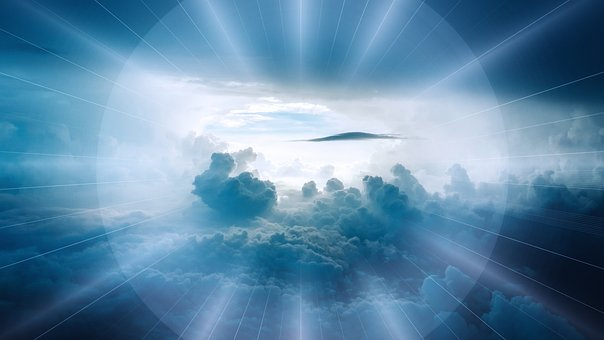Produce The Fruits!
Rev. Marcel Divine Emeka Okwara, CSsR
Homily for the Second Sunday of Advent, Year A
St. Alphonsus Catholic Church, Brooklyn Center, MN
Sunday, December 4, 2022
Before the great ancient Greek philosopher, Socrates was born, no one foretold his birth. Prior to the birth of Buddha, no one pre-announced his birth and his message. No one predicted the day he would sit under a tree and receive enlightenment. The mother of Confucius, the birth of Confucius, the birthplace of Confucius were not recorded anywhere centuries before his birth and emergence. There were no predictions about the birth of Mohammed or any other significant figures in history. These figures only came and said, Here I am, believe me. They were men from men; they were men among men and not the Divine in human flesh. But with Jesus, it was different. His coming was not unexpected. For centuries, his birth, his birthplace and mission were foretold all throughout the Old Testament. Jesus’ birth was predicted from the beginning of the Book of Genesis. Aside from Genesis, the Books of Isaiah, Micah, Hosea foretold of his birth. As for his death, it was predicted by the authors of Psalms and Isaiah. What does all this mean? It means that those who say that Jesus is just one more religious figure among the many are dead wrong. If you say he is one inspiring human being among the many others, you are wrong. If you say he is the greatest of all the prophets, you are wrong. If you say that he is one of the many messengers sent by God, you are absolutely in error. If you say he is the symbol of God, you are completely and utterly mistaken. Jesus is himself God! In the Nicene creed, we affirm and declare that “He is God from God, Light from Light, True God from True God.”
One great prophet of ancient Israel, the last Old Testament prophet to prophesy the Adventus of Jesus was John the Baptist. In fact, he was the one who identified Jesus and pointed to him when he appeared at a public scene. In today’s Gospel (Matthew 3:1-12), John is in the Jordan River preaching repentance in preparation for the coming of Jesus. He is also baptizing penitents. More to it, he is letting everyone know his own job description: “I am baptizing you with water, for repentance…” But right after that, he transitioned into speaking about the one he is sent to announce of his coming: “The one who is coming after me is mightier than I. I am not worthy to carry his sandals. He will baptize you with the Holy Spirit and fire.” John warns his listeners, especially the Pharisees and Sadducees who brag about being the descendants of Abraham that claiming Abraham as their father is not enough. He warns that for them to avoid the coming wrath, they must produce good fruit as evidence of their repentance. John is encouraging them to prepare for the coming of Jesus the Messiah by repenting. And he ties it to fruit. He ties it to doing things in their life that are righteous and upright.
In our first reading (11:1-10), Isaiah speaks about the seven gifts of the Holy Spirit— the spirit of wisdom, the spirit of understanding, of counsel, of strength (i.e. fortitude), knowledge, piety, and fear of the Lord. These gifts have been given to us, hopefully to produce fruits. And that fruit according to St. Paul in Galatia chapter 5 are love, joy, peace, patience, kindness, goodness, faithfulness, gentleness, and self-control. The problem with the Scribes, Pharisees and Sadducees is that they were looking to their spiritual lineage as kind of their tickets to heaven. They are indeed children of Abraham. But John’s warning is that being children of Abraham is not good enough. They must produce fruit, fruit of repentance. In our own lives today, we can say, “Well, I have been baptized.” It’s good to be baptized. Baptism is the gateway to heaven, but we must produce the fruits of baptism to finally make it to heaven. Producing the fruits is how we prepare for the coming of the Lord. At every Advent, we memorialize Jesus’ first coming, pay attention to how he is coming to us today and then look forward to his second coming at the end of the age.
As we prepare for the coming of the Lord, it is important to ask ourselves the following questions: am I producing the fruits? Which of these fruits am I producing and which of them am I not producing? Am I turning away from that which is hurting me and preventing me from turning to the Lord? Interiorly, am I preparing for his coming? Is Advent just a period of putting up Christmas decorations? Is it about making our homes look more beautiful and smell more beautiful? Don’t get me wrong, doing all of that is good. But we should not forget the real house of God, which is you, your body, the temple of the Holy Spirit. During this season of Advent, make it a project to turn your heart around. Consider those things that are hurting you right now. Think of those things that are detrimental to your spiritual growth, walk towards Jesus the Divine Physician and present them to him. Before you know it, Christmas will be here. If you want to celebrate Christmas with Christ, take this season of Advent seriously.
God bless you!








